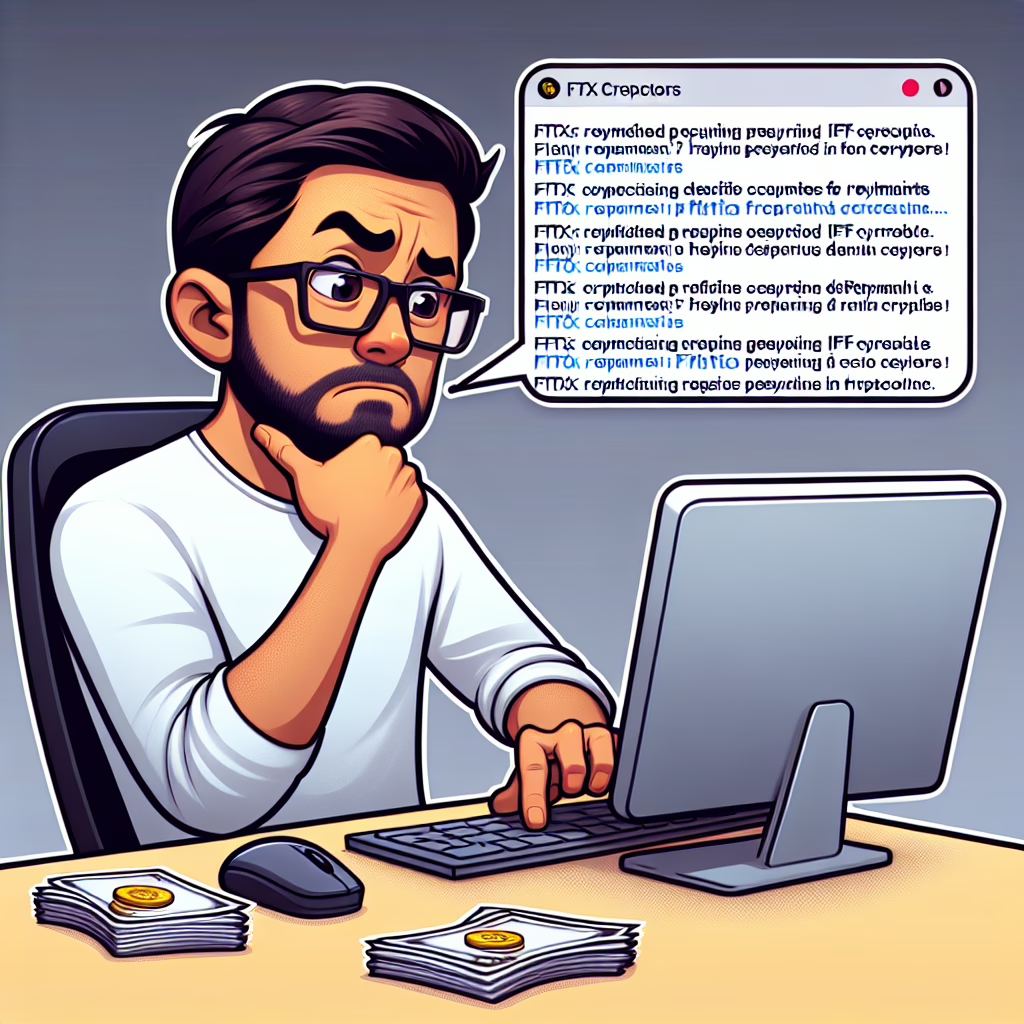Ah, the world of cryptocurrency—where fortunes can change faster than you can say “blockchain.” Today, we dive into a rather intriguing topic: the FTX creditors and the ever-lurking danger of phishing scams. With repayments on the horizon, it’s essential to equip ourselves with knowledge, a dash of humor, and a sprinkle of caution!
FTX Creditors: The Unsung Heroes
Let’s face it; being an FTX creditor in 2025 feels a bit like being a contestant on a reality show where everyone is vying for their fair share of the prize money. The only twist? The prize is your own hard-earned cash that somehow got tangled up in the wild web of crypto chaos.
But fear not, brave creditors! As you await your repayment process, it’s crucial to stay vigilant against phishing scams. These digital tricksters are lurking around every corner, waiting to swipe your details like a magician pulling a rabbit out of a hat—except this rabbit is your bank account.
Understanding the Phishing Scams
Phishing scams are like that annoying pop-up ad that you just can’t seem to close. They often appear as legitimate communications from financial institutions or crypto exchanges, designed to lure unsuspecting victims into providing personal information. In the context of FTX creditors, these scams can manifest in various forms, such as:
- Emails: Bogus messages that mimic official notifications, promising repayment or rewards.
- Texts: SMS messages claiming to be from FTX, urging immediate action to secure your funds.
- Phone calls: Tricksters posing as customer service representatives to extract sensitive information.
Imagine receiving an email that looks almost identical to the official FTX communications. It tells you that you’ve won a special prize for being a loyal creditor! All you need to do is click the link and enter your details. Sounds tempting, right? Well, spoiler alert: It’s not a prize; it’s a trap!
How to Protect Yourself as an FTX Creditor
So how do you keep your digital wallet safe while navigating this thrilling (yet perilous) journey? Here are some essential tips:
- Verify URLs: Always check the URL before clicking any links. If it looks suspicious or has extra letters that shouldn’t be there (like “www.ftxscam.com”), run away!
- Double-Check Communications: If you receive a message from FTX creditors or any related party, don’t just take it at face value. Contact them through official channels—because who doesn’t love a good old-fashioned phone call?
- Use Multi-Factor Authentication: Think of this as adding an extra lock on your door. It may seem like overkill, but in the world of crypto, better safe than sorry!
- Educate Yourself: Keep up with the latest trends in crypto security. The more you know, the less likely you’ll fall for those pesky phishing scams.
The repayment process for FTX creditors might feel like navigating through a maze filled with potential pitfalls. But with vigilance and these handy tips, you can emerge victorious—wallet intact!
The Bright Side of Being an FTX Creditor
If nothing else, being an FTX creditor offers unique perks. You’re part of one of the most talked-about financial phenomena of our time! You’re practically a pioneer in digital finance (or at least that’s what we tell ourselves while refreshing our bank accounts).
Moreover, this experience has imparted valuable lessons about security in the crypto world. After all, if we don’t laugh at our misfortunes, what’s left? Just imagine sharing tales of how you survived the great FTX saga around a campfire one day.
In conclusion, dear readers, remember that while the repayment process may seem daunting and phishing scams lurk around every corner, knowledge is your most powerful weapon. Stay informed and secure your investments so you can enjoy whatever comes next in this thrilling cryptocurrency adventure.
What are your thoughts on navigating repayments and avoiding scams? Share your experiences in the comments below!
A special thanks to CCN for their insightful article that inspired this discussion!
For further reading, check out:
- Fed’s New Vice Chair, Michelle Bowman, Is a Banking Watchdog With a Crypto Edge
- Amazon’s Panos Panay teases future Alexa+ devices from speakers to possible wearables
- Viewsonic’s 5K monitor finally goes on sale, but is it already too little too late to make a splash?

